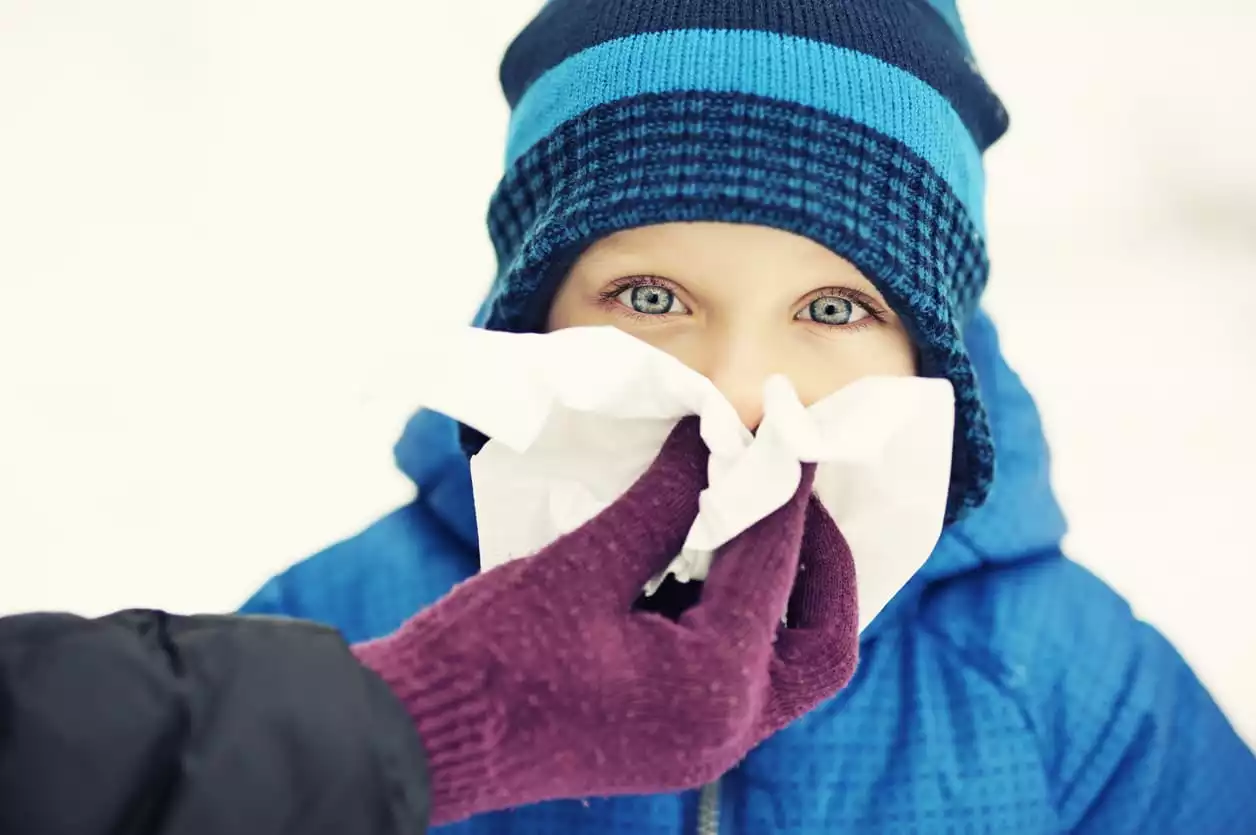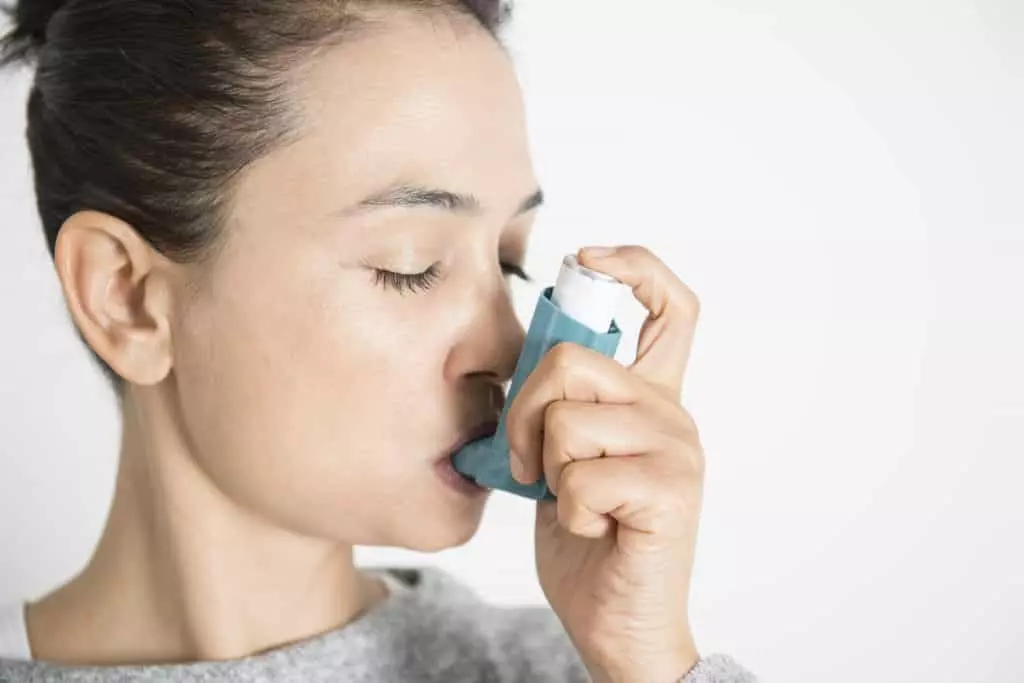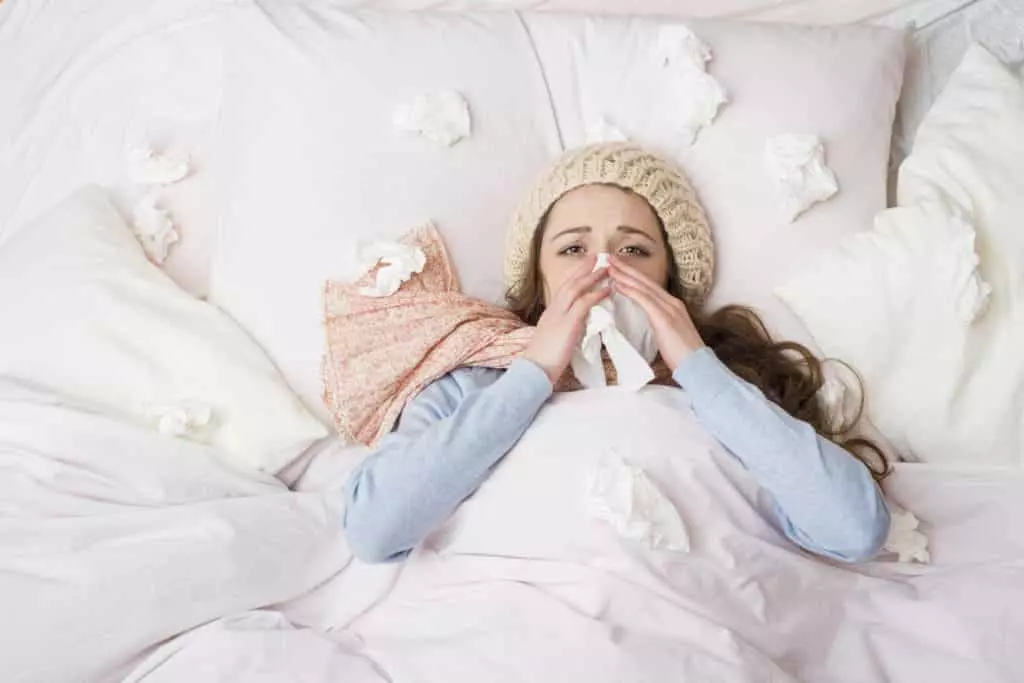
When the hustle and bustle of the holidays is coupled with the challenges of winter weather, it can be difficult to focus on yourself. We all tend to let health concerns slip a little to the wayside over the holidays, and winter can pose some pretty unique risks to your health. Avoiding the problem won’t solve it; it’s much better to address it head-on. Start with these winter health tips to solve or prevent seven common winter health problems.
Common Winter Health Problems
Due to the shifting cold weather, the hustle and bustle, and stress of the holidays, it’s common to get sick during this time of year. By understanding winter health tips to keep your body and mind healthy, you can help to prevent such ailments.
The most common winter health issues include:
- The winter blues
- Hypothermia
- Winter asthma
- Dry skin
- Flu and colds
- Winter allergies
- Common Monoxide poisoning
These winter health tips will shed light on these common ailments, and explain how you can prevent them during the winter months.
Winter Blues
The first of our winter health tips includes battling the “winter blues”. The winter blues were long dismissed as simply being little more than laziness or maybe typical depression. Today, it’s widely understood that this form of depression is very real and unique. Known as Seasonal Affective Disorder (SAD), this condition is caused by decreasing levels of sunlight and plummeting vitamin D levels that result from less exposure to the sun.
Patients who experience SAD often find it difficult to get out of bed in the morning, may feel more fatigued or may even have crying spells.
To relieve this condition, have your doctor check your vitamin D levels. Exercise regularly, and try to engage in outdoor activities so you are exposed to sunlight (safely). Some patients also experience a reduction in symptoms when using a Seasonal Affective Disorder (SAD) lightbox.
Hypothermia
Understanding the signs and symptoms of hypothermia is one of the most important winter health tips. Like many health conditions, hypothermia has a way of starting out fairly benign, but the condition can become serious very quickly. In the right conditions, this potentially-deadly condition can even cause fatalities.
Hypothermia occurs because your core body temperature dips below 35 degrees Celsius. As the core cools, the body begins to pull blood into the core, eventually shutting down organs and reducing blood flow to extremities. Symptoms often begin with white or cold skin, progressing through tingling extremities, numbness, pain, and eventually, sleepiness. This is when hypothermia is most dangerous – patients can fall asleep and simply never wake up.
Young children, infants, and patients with cardiovascular diseases are the most susceptible to hypothermia. Because their bodies have a more difficult time regulating temperature, they have a difficult time staying warm.
Hypothermia can occurs indoors as well as out; don’t assume that just because you’re working in the garage or barn you’re protected.
The best way to prevent hypothermia is to dress in protective clothing that keeps you warm and dry. When clothing becomes wet, change it out for dry clothes. Be cautious about scarves and breathing; they can become damp and cause frostbite to the face. Pay particular attention to infants and the elderly to ensure that they are maintaining their body temperature at all times.
Winter Asthma
As the thermometer drops, patients with asthma could find themselves challenged by their condition when outdoors. This rise in symptoms occurs because cold often triggers bronchial spasms, producing attacks or wheezing.
Cold air isn’t the only threat to Asthmatics in the winter; some of the most common occur indoors. Because patients spend more time indoors during the cold winter months, they may be bothered by dry indoor air or triggers like mold, dust, pet dander and other common allergens.
Using a HEPA filter can help to reduce the total number of allergens circulating freely through your home. Covering all bedding and pillows with mite-proof covers also reduces exposure to dust mites. Try to limit the amount of time you spend outside to only what is absolutely necessary. Check your home for any signs of mold and keep dust under control with frequent cleanings.
Dry Skin
If you’ve ever had rough, dry, sore, or cracked hands in cold weather, you already know how painful dry winter skin can be. The frigid temperature of winter can wreak havoc on your skin. Winter humidity doesn’t help – instead, it often saps the skin of moisture.
Knowing how to protect your skin from the winter weather is one of the most commonly used winter health tips. This is because dry winter skin comes with inflammation, itching, roughness and scaling. Ignored, these symptoms can morph into an infection that is much more difficult to treat. Fortunately, there’s an easy solution – just see your pharmacist.
A compounding pharmacy can provide a customized formulation to address your unique needs without causing overhydration, breakouts, or further issues. One excellent solution is a compounded lotion bar or light gel moisturizer that helps your skin retain more of its natural oils.
Flu and Colds
Our winter health tips also include preventing the flu and colds. It’s no secret that colds and flu flare up more frequently during the winter months, especially rhinoviruses and influenzas. The first, often referred to as the common cold, replicates more easily in colder months when people are forced into close proximity. The second comes and goes in “seasons,” the most prominent of which is mid fall to early winter.
The best way to prevent both illnesses is to get a yearly flu shot, eat well, get enough exercise, and wash your hands often. Reducing the amount of sugar and dairy you consume can help reduce congestion and improve your body’s ability to fight off any viruses it encounters. If you do get sick, your pharmacist can advise on OTC medications to fight off symptoms – but the best treatment is always rest and fluids.
Winter Allergies
If you’re like many people, you think that allergies are worse in the spring months. After all, plants sprout new growth, grass springs up, and pollen enters the air. But that’s not always the case; as mentioned above, indoor allergens actually become more common. This includes smoke, pet dander, dust bunnies, and scents!
If you suffer from winter allergies, the first step is to try to reduce your exposure to them in the first place. Ditch the scented candles and sprays, and if you have pets, consider taking an allergy medication like Claritin. Vacuum and sweep more often with HEPA-filtered devices.
Still struggling with allergies? See your pharmacist. There are ways to reduce your symptoms without feeling sleepy all day. Often, patients find the right treatment in just a few doses.
Carbon Monoxide Poisoning
Another one of the most serious winter health tips is understanding ways to prevent carbon monoxide poisoning. Your idea of a perfect winter’s night: gathering around the fireplace with your family and friends, sipping wine, or maybe (if you’re brave), barbecuing steaks in the snow from the carport. Maybe you just came home from skiing, so you jack up the thermostat and lay on the couch warming up, falling asleep in comfort. These are absolutely lovely thoughts for a warm(ish) winter night, but be careful; carbon monoxide poisoning is a serious risk.
Faulty fireplaces, furnaces, stoves, and even barbecues used in small spaces can all release high amounts of carbon monoxide. Frighteningly, you can’t smell or detect this gas and often, patients don’t feel symptoms until they’re serious. Early symptoms include nausea, dizziness and shortness of breath. Inhale enough and you will eventually lose consciousness – very dangerous if you live alone.
To prevent carbon monoxide poisoning, install several carbon monoxide monitors and keep them in good working order. Get into the habit of testing them once a month or even more often. More importantly, ensure your fireplace, stove and furnace is maintained twice a year and repaired quickly if problems arise. Never leave a gas stove or generator running indoors if you lose heat or power.
These winter health tips can help you prevent 7 common health problems that arise during the winter months. There’s no reason why you shouldn’t be able to enjoy the cold weather and the holiday spirit! Keep these 7 winter health tips in mind when it comes to staying healthy this winter.

 info@burtsrx.com
info@burtsrx.com


